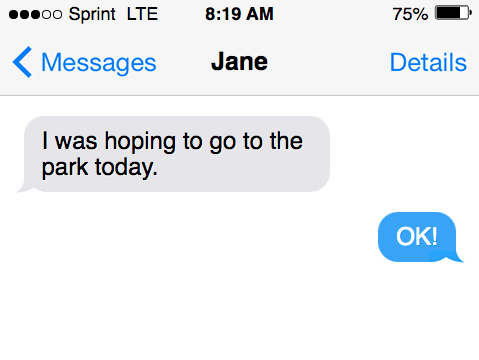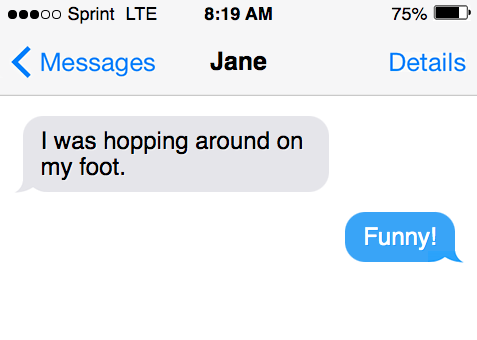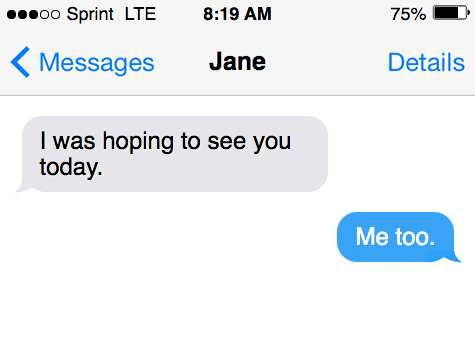Hoping vs. hopping, what’s the difference? The additional “p” letter in this word can change its meaning dramatically.
Learn the difference beween “hoping” and “hopping” in this short guide…
What is the definition of the word “hoping?”
According to Merriam-Webster the definition of “hoping” is “to cherish a desire with anticipation.” Or “to want something to happen.”
“Hoping” is to desire with the expectation of obtainment.
Another definition of “hoping” is to wish for something with a probability of it happening.
When you hope for something, you want it to happen and think there is a good chance it will happen. If you’re hoping to get a good grade on a test, it means you studied and are confident you will do well.
If you hope your favorite team wins the game, you’re rooting for them and think they have a chance to win.

When you hope, you are expressing positive expectations for the future. You may not know for sure that what you hope for will happen, but you believe it’s possible.
Hoping is often paired with faith – believing in something even when there’s no evidence to support it.
People often say they are “hoping for the best” when facing a difficult situation. This means they are trying to stay positive and think things will turn out well, even though they may be worried.
Synonyms for “hoping”
- Dreaming
- Wishing
- Aiming
Grammar tip: When a verb form ends in a slient “e,” drop the letter “e” before adding the suffix “-ing.” The final silent “e” makes it long. Hop is a one-one-one word. A one syllable, ending in one constant, proceded by a single vowel. Double the final consonant before adding the suffix beginning with a vowel.
What is the definition of the word “hopping?”
Merriam-Webster defines the verb present participle form of “hop” as “hopping.” Meaning to “move with a light springing step.”
The definition of “hopping” is to jump or spring up and down on one foot. This can be done for fun, as part of a dance, or to get somewhere quickly.
When bunnies hop, they use their back legs to push off the ground and propel themselves forward.
People can also hop on one foot. This is often done as part of a fitness routine or to get somewhere in a hurry.
“Hopping” can also be used as a verb to describe the action of a frog or toad. When these animals jump, they use their hind legs to push themselves forward in short bursts.
This hopping type is often used to escape predators or catch prey.
The word “hopping” can also describe a busy place. If a store is “hopping,” there are many people there. This can be because the store is having a sale or because it’s simply a popular place.
When a city is “hopping,” a lot is going on. There may be many events and activities to enjoy, or the city may simply be lively and exciting.

The etymology of the word “hoping”
The word “hoping” is derived from the Old English word “hōpian,” which means “to hope”. The word “hōpian” is thought to be of Germanic origin, and it is related to the word “hūpan”, which means “to hope”.
The etymology of most words in American English reveal their complication.
Synonyms for “hopping”
- Bouncing
- Lolloping
- Skipping
Difference between the words “hoping” and “hopping”
The words “hoping” and “hopping” are often confused because they look and sound similar. However, there is a big difference in meaning between these two words.
“Hoping” means to want something to happen or to be true.
For example, you might say you’re hoping for a pay raise.
On the other hand, “hopping” means to move by jumping on one foot. For example, you might say that the rabbit was hopping around the room.

What does “hopping” as a noun mean?
“Hopping” as a noun can mean several things. It can refer to the action of jumping, as in “He’s been hopping around all day.” It can also refer to a type of dance, or to something that is small and easy to carry.
The British form of “hopping” can refer to the practice of picking the hops plant. For example, “Londoners spent their holiday working in the hop gardens.” Or “We went hop picking the other day and got a great deal of supplies for our beer making.”
What about “hopping mad” as an expression?
In adverb form rather than noun form, the idiom and expression “hopping mad.” For example, “The boy was hopping mad when he realized that he forgot his homework for school that day.”
The key difference: the word “hope”
The words “hopping” and “hoping” are significnatly different because of their base form. For example, “hoping” has a base form of “hope.” Which means to “want something to happen.”
When “hopping” refers to the verb “hop.” Which typically means to jump or to leap. The Modern English form of “hopping” can also get referred to as a type of energy.
For example:
- “We went bar hopping the other night.” Referring to “jumping” from one place to another.
- “The bar was hopping. It was full of people.” Referring to the energy levels of large groups of people.
In contrast, let’s look at the base form of hope.
For example:
- “I hope that I get to see the baseball game today. Although, it doesn’t look like it’s going to happen.”
- “I’m hoping that the bad behavior doesn’t return in my children.”
- “Let’s hope that all the big rivals of this football team don’t show up this year. We should hope for only positive outcomes of this football game.”
The base form “hope” as a verb is most common. “Hope” as an adjective is more rare. For example, “A hoping situation.”
Grammar tip: The present participle form of “hope” is not “hopeing,” drop the final silent “e” in the suffix in order to follow American English spelling rules.
How to remember to spell “hoping” and not “hopping?”
An easy trick to remember to spell the correct word when writing is to rememer short vowel rules. For example, single syllable verbs that are pronounced with a short vowel double the last constant when conjugated. Like words “hopped,” “hopping,” “looped,” “looping.”
If the last three letters of a verb are a constant, a vowel, and another consonant, double the last consonant.
Examples of “hope” in sentences
Here are examples of “hope” in an English sentence:
- “I hope I don’t have to wash my mouth with that terrible dental formula. It can taste terrible.”
- “Let’s hope that we don’t have to run laps today in gym. There seems to be little reason to have to work this hard.”
Examples of “hopping” in sentences
Examples of “hopping” in an English sentence:
- “I was hopping around on my foot because it felt broken.”
- “She was hopping from left to right to try and avoid getting tagged on the playground during the game.”
Conclusion
As we can see, while “hoping” and “hopping” have similar pronunciation. And look similar, they hold very different meanings.
To hope means to “be wishful.” While to hop means to “leap and spring.”
Sources
- Hope Definition & Meaning – Merriam-Webster
- 33 Synonyms of HOPING – Thesaurus – Merriam-Webster
- Hopping Definition & Meaning – Merriam-Webster
- Rules of Doubling the Final Consonant in a Verb – Rong Chang
- Past Tense vs. Past Participle: What’s the Difference? – FluentU
- A present participle is the –ing form of a verb when it is used …
- hopian – Wiktionary
- English Translation of “hupen” – Collins Dictionary
Inside this article
Fact checked:
Content is rigorously reviewed by a team of qualified and experienced fact checkers. Fact checkers review articles for factual accuracy, relevance, and timeliness. Learn more.
Core lessons
Glossary
- Abstract Noun
- Accusative Case
- Anecdote
- Antonym
- Active Sentence
- Adverb
- Adjective
- Allegory
- Alliteration
- Adjective Clause
- Adjective Phrase
- Ampersand
- Anastrophe
- Adverbial Clause
- Appositive Phrase
- Clause
- Compound Adjective
- Complex Sentence
- Compound Words
- Compound Predicate
- Common Noun
- Comparative Adjective
- Comparative and Superlative
- Compound Noun
- Compound Subject
- Compound Sentence
- Copular Verb
- Collective Noun
- Colloquialism
- Conciseness
- Consonance
- Conditional
- Concrete Noun
- Conjunction
- Conjugation
- Conditional Sentence
- Comma Splice
- Correlative Conjunction
- Coordinating Conjunction
- Coordinate Adjective
- Cumulative Adjective
- Dative Case
- Determiner
- Declarative Sentence
- Declarative Statement
- Direct Object Pronoun
- Direct Object
- Diction
- Diphthong
- Dangling Modifier
- Demonstrative Pronoun
- Demonstrative Adjective
- Direct Characterization
- Definite Article
- Doublespeak
- False Dilemma Fallacy
- Future Perfect Progressive
- Future Simple
- Future Perfect Continuous
- Future Perfect
- First Conditional
- Irregular Adjective
- Irregular Verb
- Imperative Sentence
- Indefinite Article
- Intransitive Verb
- Introductory Phrase
- Indefinite Pronoun
- Indirect Characterization
- Interrogative Sentence
- Intensive Pronoun
- Inanimate Object
- Indefinite Tense
- Infinitive Phrase
- Interjection
- Intensifier
- Infinitive
- Indicative Mood
- Participle
- Parallelism
- Prepositional Phrase
- Past Simple Tense
- Past Continuous Tense
- Past Perfect Tense
- Past Progressive Tense
- Present Simple Tense
- Present Perfect Tense
- Personal Pronoun
- Personification
- Persuasive Writing
- Parallel Structure
- Phrasal Verb
- Predicate Adjective
- Predicate Nominative
- Phonetic Language
- Plural Noun
- Punctuation
- Punctuation Marks
- Preposition
- Preposition of Place
- Parts of Speech
- Possessive Adjective
- Possessive Determiner
- Possessive Case
- Possessive Noun
- Proper Adjective
- Proper Noun
- Present Participle
- Prefix
- Predicate



